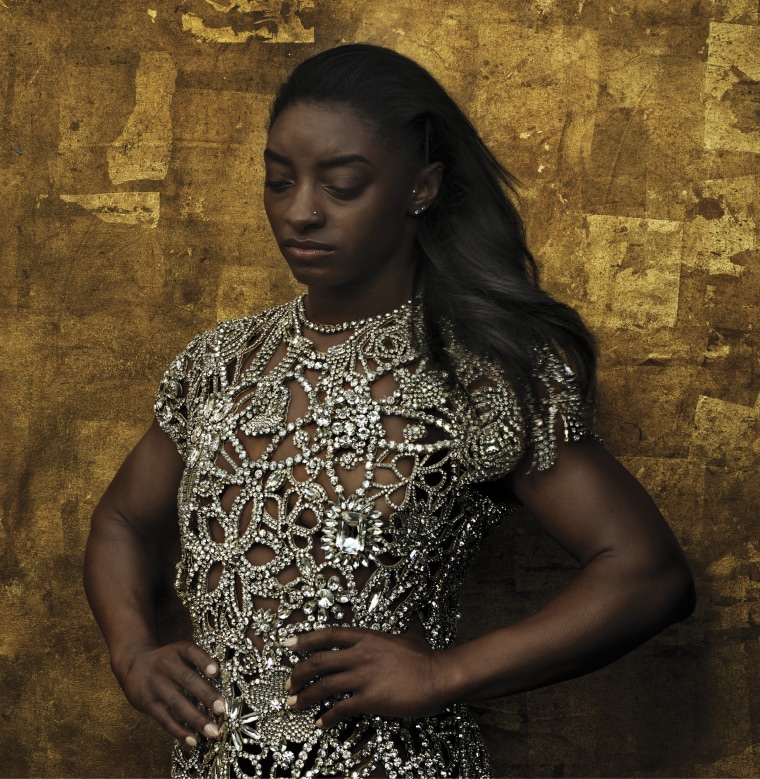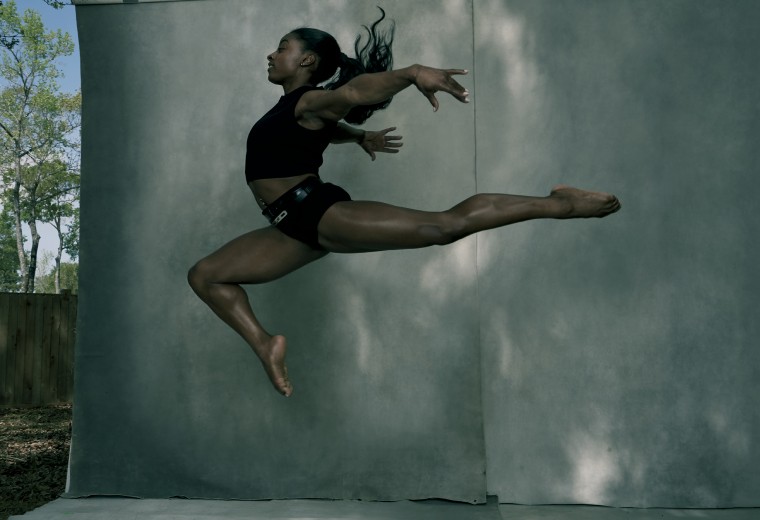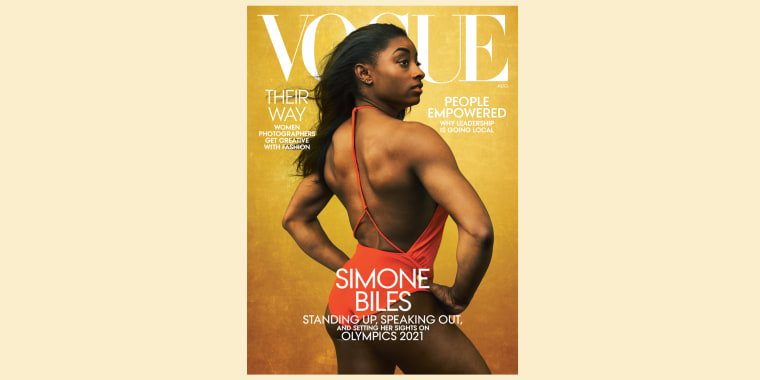Over the last few years, Simone Biles has experienced some major highs and crushing lows, and she's ready to talk about it all. The 23-year-old gymnast appears on the cover of Vogue's August issue (on newsstands nationwide July 21) and opens up about her route to success, being a Black role model and finding her voice after the Larry Nassar sex abuse scandal.
Biles won the hearts of gymnastics fans back in 2016 when she took home four gold medals and a bronze at the Rio Olympics and made the poignant declaration: “I’m not the next Usain Bolt or Michael Phelps. I’m the first Simone Biles.”

Since then, Biles has quickly risen to fame for her astonishing gymnastics skills and bubbly personality. But she has also faced a lot of obstacles along the way, like the negative comments she got when she first began competing.
“They focused on my hair. They focused on how big my legs were. But God made me this way, and I feel like if I didn’t have these legs or these calves, I wouldn’t be able to tumble as high as I can and have all of these moves named after me," she told Vogue.
Over time, Biles came to realize that critics would always try to find something about her appearance to attack, and she's developed a tough skin as a result. “No matter how good you are in your sport, in life, in work, the No. 1 thing people talk about is how you look,” she said.
As a young gymnast on the rise, Biles didn't have many Black role models in the industry, and that's something she'd like to change.
“Growing up, I didn’t see very many Black gymnasts, so whenever I did, I felt really inspired to go out there and want to be as good as them. I remember watching Gabby Douglas win the 2012 Olympics, and I was like, If she can do it, I can do it.”
She's also excited to see the Black Lives Matter movement gaining traction in recent weeks and hopes it results in positive change.
“We need justice for the Black community. With the peaceful protests, it’s the start of change, but it’s sad that it took all of this for people to listen. Racism and injustice have existed for years with the Black community. How many times has this happened before we had cellphones?” she said.

Over the past few years, Biles has used her position to speak out against Larry Nassar, the former USA Gymnastics doctor who sexually abused hundreds of gymnasts, including herself. But it took her a while to come to terms with her abuse.
“I felt like I knew, I just didn’t want to admit it to myself, that it had happened. Because I felt like, not that you’re supposed to be perfect, but I just felt like that’s what America wanted me to be — was perfect. Because every time an American wins the Olympics, you’re like America’s sweetheart. So it’s like, how could this happen to America’s sweetheart? That’s how I felt — like I was letting other people down by this,” she said.
Biles is hoping the gymnastics field will enact real change to ensure the safety of young gymnasts and argues that the future of the industry depends on it.
“We can’t feel comfortable promoting our sport if we fear that something might happen like this again because they’re not doing their part," she said.


